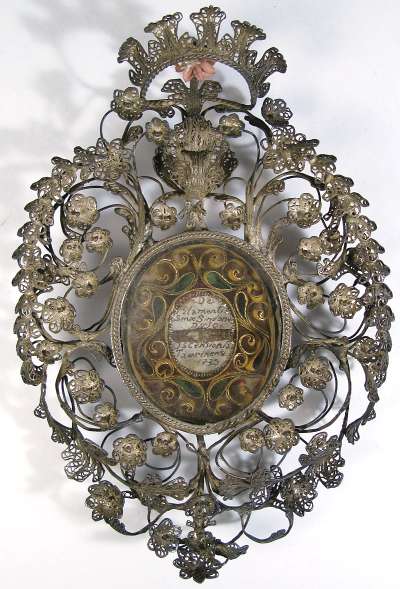The Holy Shroud is considered one of the most important relics of Christianity. Its existence has been documented since the 6th century when it was venerated in Edessa, Syria. In 944, it was brought to Constantinople, where it was depicted in the “Codex Pray” and described in the homilies of the Patriarchs and the reports of visitors. In 1204, during the 4th Crusade, it was stolen from its reliquary in the Imperial Palace Chapel by the French knight Othon de la Roche and brought to France via Athens. He sent it to his castle near Besancon, where it was shown in the local Cathedral on Good Friday. Since 1357, it was first venerated in Lirey, Champagne, then in Chambery, and finally brought to Turin, Italy by the Savoy Dynasty in 1598.
In the 18th century, two popes, Clement XII (p. 1730-1740) and Benedict XIV (p. 1740-1758), ordered pieces of the upper left and right edge of the shroud to be clipped to disseminate the resulting fragments as papal gifts. In addition, Savoy tried to use the phenomenal popularity of the Shroud as an object of veneration to achieve the aims of domination in Piedmont, conversion of Turin into a capital of the European autocracy and achievement of international recognition as a ruling house of the royal standing. It is likely that a number of reliquaries containing particles of the Holy Shroud were distributed by the Duke of Savoy Victor Amadeus II († 1732) in the form of gifts aimed at achieving dynastic aspirations of the House of Savoy.










 Поменять язык на русский
Поменять язык на русский 